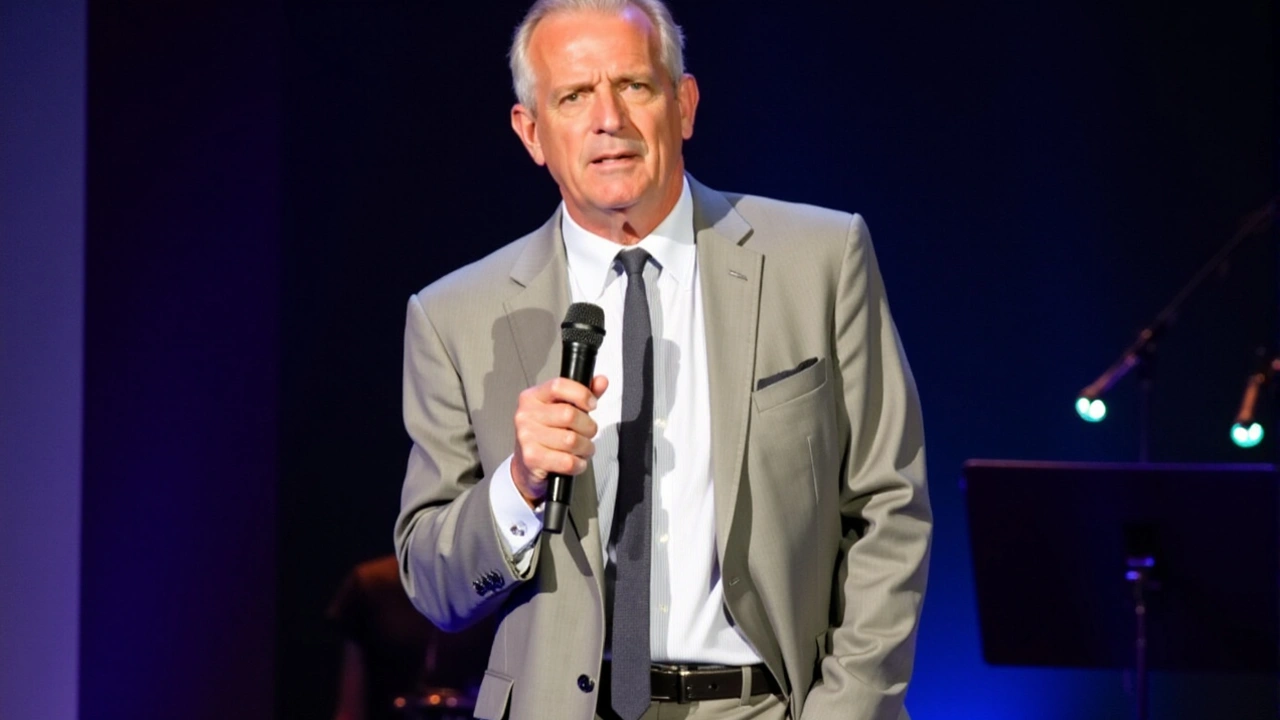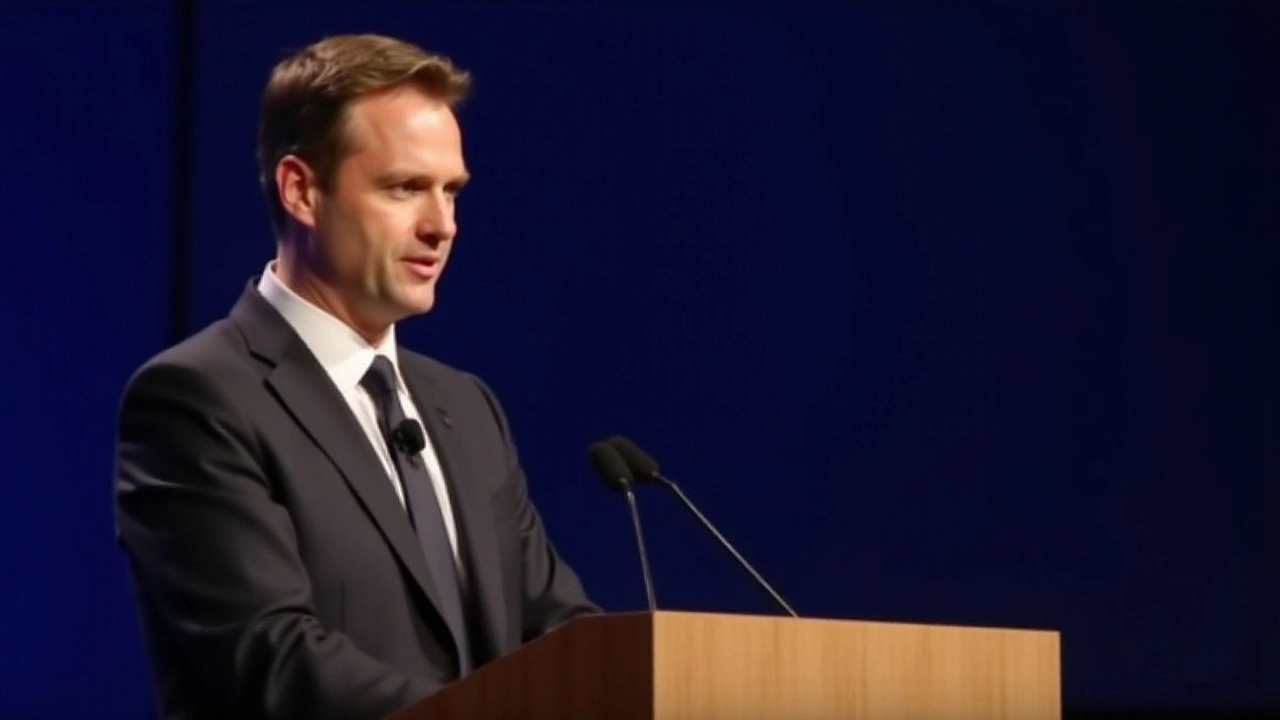Robert F. Kennedy Jr. Stuck on Michigan Ballot Despite Suspending Campaign—Legal Complexities Ensue
 Aug, 24 2024
Aug, 24 2024
In an unexpected development, Robert F. Kennedy Jr. will appear on Michigan's presidential ballot despite having suspended his campaign and endorsed GOP nominee Donald Trump. The intricacies of state election laws have resulted in Kennedy's name remaining on the ballot, a decision that may confuse some voters as they head to the polls.
Kennedy's Campaign Suspension
Kennedy, the nephew of former President John F. Kennedy, initially launched his campaign with high hopes and a strikingly ambitious agenda. However, facing an uphill battle within a crowded field, he decided to suspend his campaign. His public announcement of this decision came with the surprising twist of endorsing Donald Trump, a move that stunned many of his supporters and political pundits alike.
The Michigan Ballot Complication
The complexities of U.S. election laws vary significantly from state to state, and Michigan presents a case study in how rigid some of these rules can be. The deadline for withdrawing from the Michigan ballot had already passed by the time Kennedy suspended his campaign. Legally, his name could not be removed, and as per Michigan's election code, it is too late to make any changes. This results in Kennedy, a non-campaigning candidate, still being an option for Michigan voters, arguably creating a situation ripe for confusion.
Implications for Voters and Candidates
This incident underscores the broader implications regarding voter intentions and the realities of electoral law. Voters expecting to find clear-cut choices may be bewildered by the presence of a candidate who is no longer in the race. On the other hand, this occurrence speaks volumes about the rigid timelines that candidates must adhere to if they wish to withdraw formally from the ballot in various states. These timelines, statutes, and deadlines inherently shape the logistical landscape of election campaigns.
For Kennedy’s campaign team, this incident potentially risks sending mixed messages to voters. On one hand, his endorsement of Trump signals that he no longer wants to contend in this election cycle. On the other hand, the unmovable presence of his name on ballots due to procedural legality can create an inconsistency in how his political decisions are perceived.

Legal and Political Expert Opinions
Legal experts suggest that Michigan’s strict deadlines serve as a reminder of the inflexibility inherent within the electoral framework. Notably, these stringent statutes are in place to maintain the integrity and organization of the voting process, ensuring that administration proceeds smoothly. Changing names on ballots close to the election could introduce logistical challenges and confusion, both for election staff and voters.
Political analysts, weighing in on the matter, indicate that Kennedy’s endorsement of Trump may nullify the impact of his name on the ballot. Voters who follow his political guidance may choose Trump regardless, yet there’s always room for unpredictability in voter behavior, and a percentage of votes might still gravitate towards Kennedy as a symbolic gesture.
The Big Picture: Election Laws and Procedures
This situation isn’t entirely unprecedented, as candidates have previously found themselves locked onto ballots despite suspending their campaigns. It emphasizes the need for an in-depth understanding of how electoral rules work and how they can profoundly affect both political strategies and voter sentiments.
The upcoming election in Michigan stands as a reflective example of the nuanced and meticulously outlined laws governing elections. This mix of legal rigidity and political dynamics ensures that no campaign or decision is devoid of wider ramifications. As voters prepare to cast their ballots, aware or unaware of Kennedy’s political status, his fixed presence might provide unforeseen impacts on the overall vote distribution.
In conclusion, the retention of Robert F. Kennedy Jr. on Michigan's ballot, despite him ceasing his campaign efforts, is a stark illustration of the meticulous and sometimes rigid nature of American electoral laws. As the election day approaches, it is crucial for voters to navigate this intricacy with a heightened awareness of the electoral procedures and the implications of their choices. The scenario further underscores the importance of up-to-date information and the intricate dance between legal stipulations and political maneuvering.

Naveen Kumar Lokanatha
August 24, 2024 AT 20:57Interesting case about Kennedy staying on the Michigan ballot even after suspending his campaign. The legal deadline really does lock in names early.
Alastair Moreton
August 26, 2024 AT 00:44Wow, talk about a bureaucratic nightmare – parties should just let a guy drop out instead of playing paperwork games.
Surya Shrestha
August 27, 2024 AT 10:04One must concede that the intricacies of state election statutes are not merely procedural formalities, but rather the very scaffolding upon which democratic legitimacy is constructed; consequently, the rigidity observed in Michigan’s withdrawal deadline serves as a testament to the procedural sanctity revered by the electoral apparatus.
Rahul kumar
August 29, 2024 AT 00:57Yeah, basically once that deadline passes the name is locked in. No more changes can be made unless the state decides to rewrite the whole rulebook lol.
Voters just need to read the news and know where Kennedy stands now.
mary oconnell
August 30, 2024 AT 21:24Ah, the sweet symphony of legalese meets political theater – Kennedy’s name on the ballot is a perfect illustration of how the system can unintentionally serve as a stage for unexpected plot twists, all while the electorate is left to decipher the script.
Michael Laffitte
September 1, 2024 AT 23:24Drama! It’s like watching a reality show where the contestant announced they’re out, but the producers keep them on screen for the ratings.
sahil jain
September 4, 2024 AT 06:57Michigan’s deadline is a hard stop – no more edits once it’s passed. :)
Bruce Moncrieff
September 6, 2024 AT 20:04Exactly, it’s like the system says “you’ve got one shot, make it count”, and then you’re stuck with the name even if the candidate says “I’m out”. It’s a reminder to plan withdrawals early.
Dee Boyd
September 9, 2024 AT 09:11The ethical implications are stark: voters deserve clarity, not a phantom candidate lingering on the ballot, which can dilute the integrity of their choice.
Carol Wild
September 11, 2024 AT 22:17The presence of a non‑campaigning candidate on the ballot is more than a mere administrative hiccup; it is a symptom of a deeper malaise that afflicts our electoral framework, wherein outdated statutes are allowed to persist unchecked, fostering an environment ripe for manipulation and confusion among the electorate. When a candidate publicly withdraws yet remains a listed option, the voter’s decision‑making process is compromised, introducing an element of ambiguity that can be exploited by partisan operatives seeking to siphon stray votes. This scenario also underscores how legal rigidity can inadvertently become a tool for political actors to shape outcomes behind the scenes, without overtly violating any explicit rule. Moreover, the endorsement of another candidate- in this case, Donald Trump- adds another layer of complexity, as some voters may interpret the ballot presence as an endorsement signal, while others may view it as a clerical oversight. The confluence of these factors creates a fertile ground for conspiracy theories, inevitably feeding the narrative that our democracy is being steered by unseen forces. Critics argue that the system’s inflexibility serves a noble purpose: preserving order and preventing last‑minute chaos. However, the cost of such rigidity may outweigh its benefits, especially when it leads to voter disenfranchisement. The law’s intent-to maintain ballot integrity-must be balanced against the practical reality that campaign dynamics evolve rapidly, often outpacing procedural deadlines. In a nation that prides itself on democratic participation, allowing a withdrawn candidate to linger on the ballot sends a mixed message about the value placed on informed voter choice. It also raises the question of whether election officials have sufficient authority to adapt rules in response to unprecedented circumstances without compromising legal consistency. Ultimately, the situation in Michigan is a case study in how procedural inflexibility can have real‑world repercussions, potentially altering the distribution of votes in ways that neither the candidate nor the electorate anticipated. It serves as a reminder that our election laws, while designed to safeguard the process, must also be adaptable enough to reflect the fluid nature of modern political campaigns. As voters head to the polls, they should be encouraged to stay informed, critically evaluate the ballot, and recognize that a name on the paper does not always equate to an active candidacy.
Rahul Sharma
September 14, 2024 AT 11:24To elucidate, the statutory deadline in Michigan is unequivocally absolute; it precludes any post‑deadline modifications, thereby cementing a candidate’s presence irrespective of subsequent campaign developments. This legal finality, while ostensibly protecting procedural order, also necessitates vigilant foresight from candidates regarding withdrawal timing.
Emily Kadanec
September 16, 2024 AT 18:57Yep, that's how it works – once the clock hits, you're stuck on the paper.
william wijaya
September 19, 2024 AT 08:04The situation highlights how procedural rules can unintentionally influence voter psychology, introducing a subtle bias that may skew the final tallies in unexpected ways.
Lemuel Belleza
September 21, 2024 AT 21:11True, but at the end of the day voters will decide based on the policies they care about.
faye ambit
September 24, 2024 AT 10:17Ultimately, this episode serves as a reminder that electoral systems must balance rigidity with flexibility to ensure both order and genuine democratic choice.